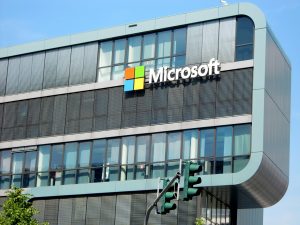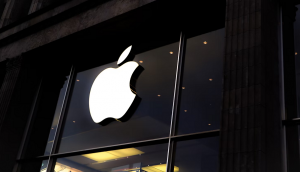Yahoo’s Search Ship Is Sinking
![]() Any way you slice it, Yahoo is seeing a strong decline in its search revenues in the second quarter, following the same path of decreasing revenues since 2008. Back then, Yahoo’s net search revenues were around $544 million and starting with the fourth quarter of 2008, the figures went as down as low as $393 million in the first quarter of 2011. The net search figures come from Yahoo’s “Revenue ex-TAC” charts, each meaning revenue that Yahoo has earned less TAC.
Any way you slice it, Yahoo is seeing a strong decline in its search revenues in the second quarter, following the same path of decreasing revenues since 2008. Back then, Yahoo’s net search revenues were around $544 million and starting with the fourth quarter of 2008, the figures went as down as low as $393 million in the first quarter of 2011. The net search figures come from Yahoo’s “Revenue ex-TAC” charts, each meaning revenue that Yahoo has earned less TAC.
O&O search was more of a mix story for the quarter. Year-over-year, revenue declined 14% driven mostly by lower RPS. We’re pleased, however, that the RPS trajectory improved sequentially for the second straight quarter, led by 2% growth in the U.S. That’s particularly significant given that the December quarter is traditionally the strongest for monetization, typically followed by a lower 1Q.
The company tried to attribute the low results to Microsoft’s underperforming ads, and to having had to pay its new search partner 12% of Yahoo’s net search revenues. In Q4 2010, Yahoo took up Microsoft’s ads as part of their partnership by which Yahoo largely gave up having its own search technology and ad system, outsourcing this to Microsoft.
The good news is that many of our most important advertisers are realizing a much higher ROI on their campaign in the combined marketplace. We see major financial, auto, retail and customers spending multiples of what they spent with Yahoo! and Microsoft previously because returns have been great. And some recent third-party reports have reinforced why we did the alliance in the first place. Advertisers CTA and ROI and Yahoo! has improved dramatically. This is good news for advertisers as they seek an alternative for their online search marketing spend. On the downside, however, adCenter isn’t yet producing the RPS [revenue per search] we hoped for and are confident as possible. Advertisers are seeing strong ROI, but technical limitations in the current adCenter platform mean the click volumes just isn’t there yet.
According to research undergone by comScore, well before Microsoft came along, Yahoo had increased the number of searches while its revenue per search kept falling. Afterwards, in February 2007, Yahoo launched Panama ad system, putting pressure on Yahoo by investors to outsource to either Google or Microsoft. As seen from the charts, 3 years later, in 2010, Yahoo’s search revenues did not increase even with Yahoo’s own ads.
Another explanation from Yahoo for the low results is Bing’s search results as users ‘clicked more on the organic results and less on the paid results lowering RPS. This accounted for the majority of the revenue difference relative to our expectations,’ said Morse.
Yahoo needs to act quickly, and it now has the advantage of having Microsoft as a partner. The two must work out in order to get back on track and this does not necessarily mean heavy investments, but invest relatively minor amounts and tap into residual traffic as a profit center for as long as possible. Yet, analysts are optimistic about Yahoo’s situation in the near future. After Yahoo’s announcement of earnings decline, the company’s shares increased 4.7 percent to $16.87. Macquarie Equities Research analyst Ben Schachter said the company posted “overall a good quarter.”
“Revenue was just in line, but expenses were $30 million below the guidance midpoint,” he added. “We continue to believe that Yahoo’s display business can perform about in line or better than overall market growth for the near to mid-term, and we remain concerned about Yahoo’s positioning in search.”
A message from John Furrier, co-founder of SiliconANGLE:
Your vote of support is important to us and it helps us keep the content FREE.
One click below supports our mission to provide free, deep, and relevant content.
Join our community on YouTube
Join the community that includes more than 15,000 #CubeAlumni experts, including Amazon.com CEO Andy Jassy, Dell Technologies founder and CEO Michael Dell, Intel CEO Pat Gelsinger, and many more luminaries and experts.
THANK YOU









